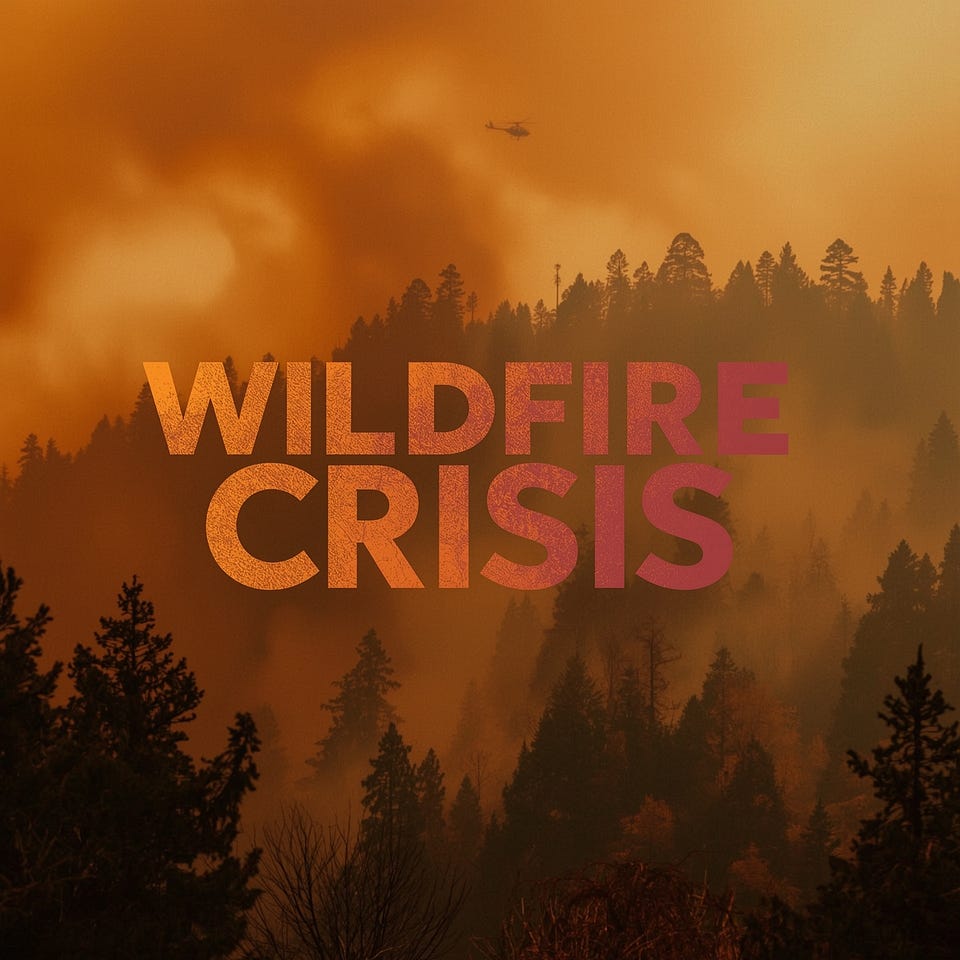How to handle wildfires when smoke compromises health and air quality

Even people who are not directly in the path of the fire are at risk for health problems due to smoke from local wildfire
More of us and more of our communities are at danger of harm as wildfires increase in frequency owing to climate change and drier conditions. Here are some tips to assist you and your family get ready and stay safe.
What is the impact of wildfire smoke on air quality?
Smoke from wildfires is a major cause of poor air quality. Wildfires produce toxic fumes and small particles of various sizes that are dangerous to breathe, much like pollution from burning coal, oil, and gas. Toxins from burning structures and chemical storage are also present in wildfire smoke.
Smoke can move to far-off places beyond state and national borders thanks to meteorological patterns and jet streams.
What health effects can smoke from wildfires have?
The most concerning for human health are the tiny particles in wildfire smoke, also referred to as particulate matter, or PM10, PM2.5, and PM0.1. These particles have the ability to pass deep into the lungs and occasionally into the bloodstream when we breathe them in.Smoke from wildfires can cause respiratory problems, coughing, wheezing, and irritation of the eyes and skin. Heart failure, heart attacks, and strokes are among the other potentially dangerous health consequences.
Who should exercise extra caution?
Children, the elderly, outdoor labourers, pregnant women, and anyone with heart or lung diseases are the groups most vulnerable to the harmful effects of wildfire smoke.
Discuss the potential effects of smoke on your health with your doctor if you have a chronic illness. Learn which symptoms call for a visit to the doctor or a change in your prescription. This is particularly crucial if you have heart or lung issues.
What steps can you take to get ready for a wildfire?
If you are in a region where wildfires are a threat or where dry weather and heat increase the likelihood of them happening:
Plan your family’s evacuation in advance of a wildfire.
Make sure you have enough water, medications, and non-cooking food to last for several days. If a wildfire or other natural disaster forces you to evacuate immediately, this will be helpful.
Check this fire and smoke map frequently, as it displays the current situation of wildfires and includes links to state advisories.
If you are near an active fire, heed the warnings of local authorities.
What actions can you take on days with poor air quality to reduce health risks?
During wildfire smoke advisories and other periods of low air quality, follow these six strategies to keep healthy:Pay attention to the quality of the air.AirNow.gov provides activity recommendations along with the current air quality risk category for your location. Stay inside when advised, and shut off windows, doors, and any exterior air intake vents.
- Think about purchasing an air purifier. Even in the absence of local wildfires, this is crucial if you reside in a dilapidated building. Avoiding air cleaners that produce ozone, another pollutant, is advised by the EPA.
- If you have an HVAC system, get familiar with it. If at all feasible, select high-efficiency filters and change them as needed because the quality and cleanliness of your filters matter. Finding out if your system has exterior air intake vents is also crucial.
- Steer clear of indoor pollutants. This includes refraining from smoking, vacuuming, and burning items like incense or candles. Steer clear of gas burners and cooking, especially if your stove lacks adequate ventilation.
- “Clean the room.” Select a space with fewer windows and entrances. If you are not utilising central air conditioning to stay cool, run an air purifier that is the right size for this space.
- Spend as little time as possible outside and wear a mask. Once more, it will be helpful to have a few days’ supply of prescriptions and non-cooking food. Reduce the amount of time and intensity of your outdoor activities if you must. Wearing a P100 respirator or a properly fitted N95 or KN95 mask will help prevent you from breathing in tiny particles floating in smokey air.
Comments
Post a Comment